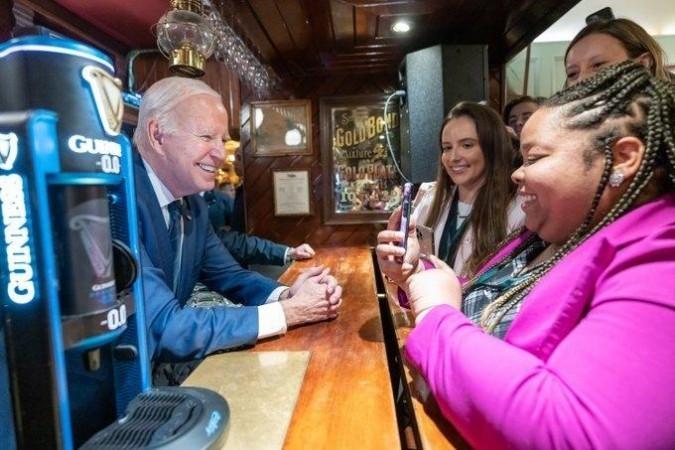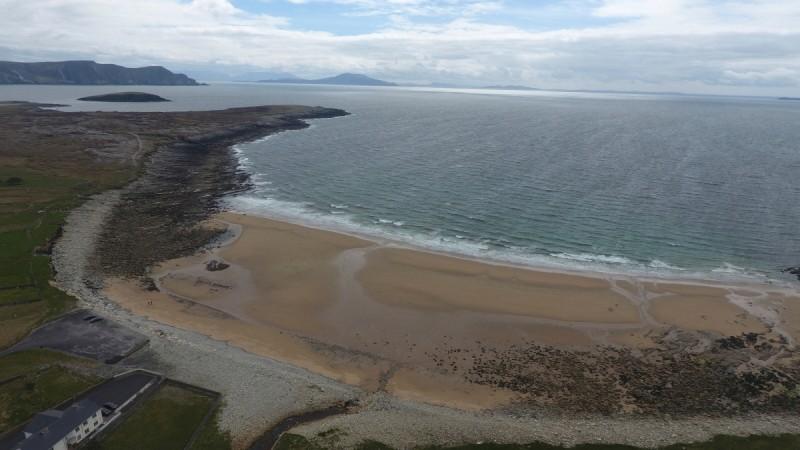Visiting US President Joe Biden paid homage to his Irish heritage during a trip to the home county of his ancestors, the media reported.
Biden arrived in Ireland on Wednesday on a three-day visit from his brief trip to Northern Ireland where he marked the 25th anniversary of Good Friday peace agreement, reports the BBC.
Later in the evening, he addressed thousands of people at the Windsor Bar in Dundalk town, County Louth, and said that visiting the area which his great-great-grandfather had left for America "feels like coming home".
To shouts of "welcome home, Joe", the President said Irish people were the "only people in the world in my view who are actually nostalgic about the future".

"It is because, more than anything in my experience, hope is what beats in the heart of all people and in particular in the hearts of the Irish," he said, adding: "Every action is about hope we can make things better."
Biden said his ancestors left Ireland at about the same time as former US President Barack Obama's great-great-great-grandfather Falmouth Kearney, who was from Moneygall in County Offaly.
"They would never have dreamed that their grandsons would have been presidents of the US," he said.
Varadkar receives Biden
After landing in Dublin where he was received by Irish Prime Minister Leo Varadkar, Biden travelled to meet distant relatives in the Cooley Peninsula and the village of Carlingford in County Louth on the east coast.
The President also visited a Dundalk shop owned by Jerome McAteer, who said he was honoured to sell Biden some sweet treats, including lemon meringue and chocolate eclairs, the BBC reported.
Biden regularly speaks of his Irish heritage and had promised to visit Ireland during his term in office.

A US genealogist who researched the President's lineage has estimated he is "roughly five-eighths" Irish.
His maternal great-great-grandfather Owen Finnegan departed Carlingford in County Louth in the late 1840s to travel to America.
Among his great-grandparents was Edward Blewitt, who left the west coast town of Ballina in County Mayo in 1850 to emigrate to the US.
He settled in Scranton, Pennsylvania, as the devastating Irish potato famine was causing widespread starvation.
(With inputs from IANS)

















